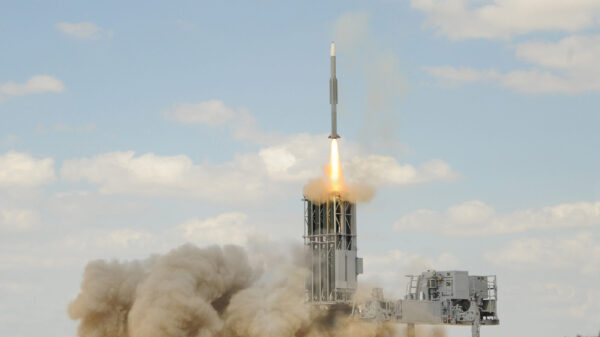The United States is dispatching the USS Gerald R. Ford aircraft carrier to waters off South America, marking a significant escalation in military presence in the region. The Pentagon confirmed this development on September 29, 2023, as Defense Secretary Pete Hegseth ordered the carrier and its accompanying strike group to bolster efforts against illicit activities that threaten U.S. security. Pentagon spokesman Sean Parnell stated that the deployment aims to enhance the U.S. military’s capacity to detect and disrupt threats in the area.
Currently stationed in the Mediterranean Sea, the USS Gerald R. Ford is accompanied by five destroyers, with some units already positioned in the Arabian Sea and the Red Sea. While the specific timeline for the carrier group’s arrival in South America remains unclear, this move reflects an ongoing trend of heightened military engagement by the U.S. in the Caribbean and near Venezuela.
In the hours leading up to the announcement, the U.S. military reported conducting its tenth strike on a suspected drug trafficking vessel, resulting in at least six fatalities. This operation, linked to the Tren de Aragua gang, has escalated tensions in a region where U.S. military actions have intensified significantly since early September.
Strategic Military Actions and Regional Implications
The strikes conducted by U.S. forces have increased in frequency, shifting from sporadic actions to multiple operations within a single week, leading to a total of at least 43 casualties since the campaign began. The latest strikes have expanded operations to the eastern Pacific Ocean, a critical transit zone for cocaine originating from major producer countries.
A video released by the military depicted a small boat being struck by a projectile in international waters, illustrating the aggressive nature of these operations. Hegseth emphasized the U.S. commitment to countering drug trafficking, declaring, “If you are a narco-terrorist smuggling drugs in our hemisphere, we will treat you like we treat Al-Qaeda.” This stark comparison aligns the current drug enforcement strategy with counterterrorism efforts post-September 11.
The focus on Tren de Aragua, designated a foreign terrorist organization by the Trump administration, highlights a strategy aimed not only at drug trafficking but also at political implications regarding Venezuelan President Nicolás Maduro. The U.S. military’s actions have spurred speculations about a broader objective of destabilizing Maduro’s regime, especially given the recent flights of supersonic bombers near Venezuela.
Domestic and International Responses
Maduro has condemned the U.S. military buildup, asserting that these operations are an attempt to undermine his government. He praised Venezuelan security forces for their readiness to defend the country, stating that “100% of all the country’s coastline was covered in real time” during military exercises designed to counter potential U.S. actions.
Critics of the military operations, including lawmakers from both major political parties, have raised concerns about the legality and potential consequences of unilateral military actions. Some, like Senator Andy Kim from New Jersey, fear the implications of escalating military engagement without congressional authorization. Others, such as Representative Mario Diaz-Balart from Florida, support a decisive approach to combat drug cartels, viewing it as a necessary step toward securing U.S. interests.
The U.S. administration maintains that these military actions are primarily focused on combating drug trafficking. Yet, analysts suggest that the underlying message is about reinforcing U.S. influence in the region and signaling to other countries the ramifications of not aligning with U.S. policies.
As military operations continue in Latin America, the potential for further escalation remains a significant concern for both U.S. officials and regional leaders. The evolving situation will likely have lasting implications for U.S.-Latin American relations and the ongoing battle against drug trafficking.





































































